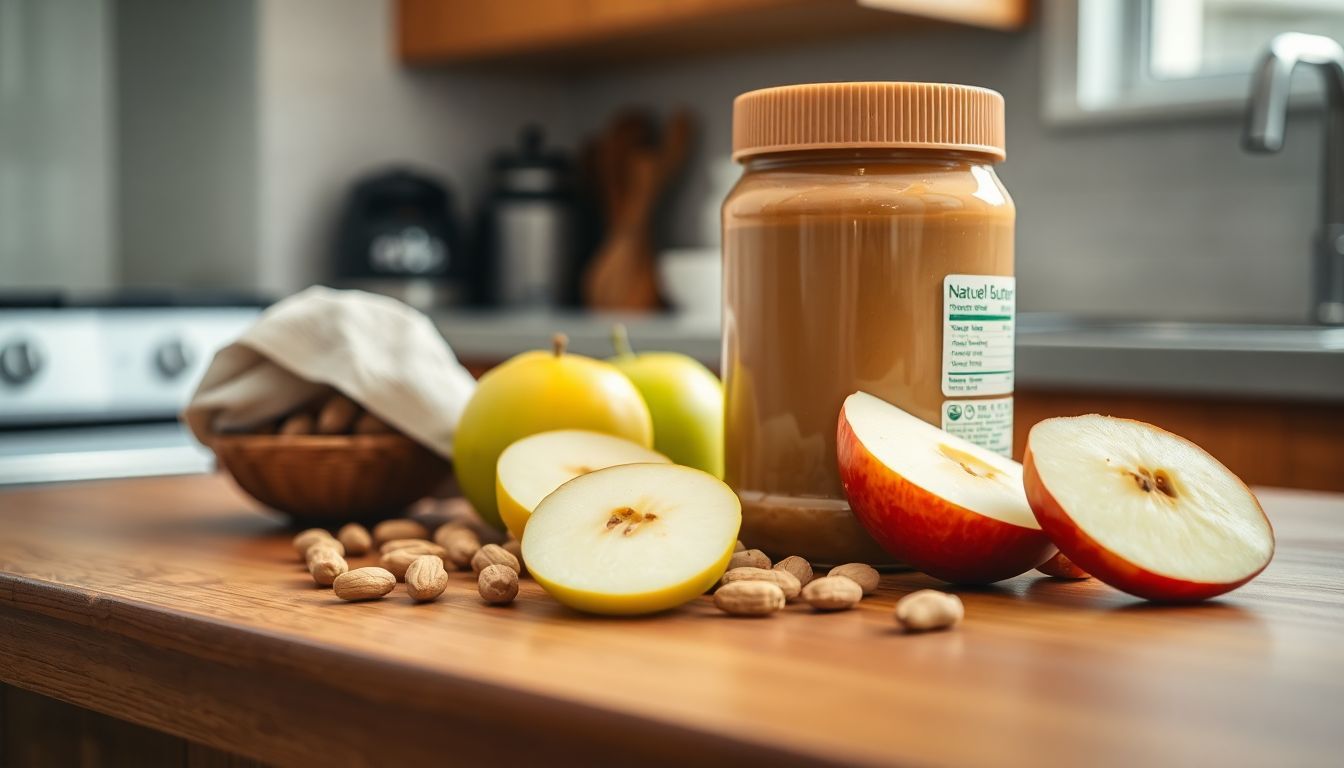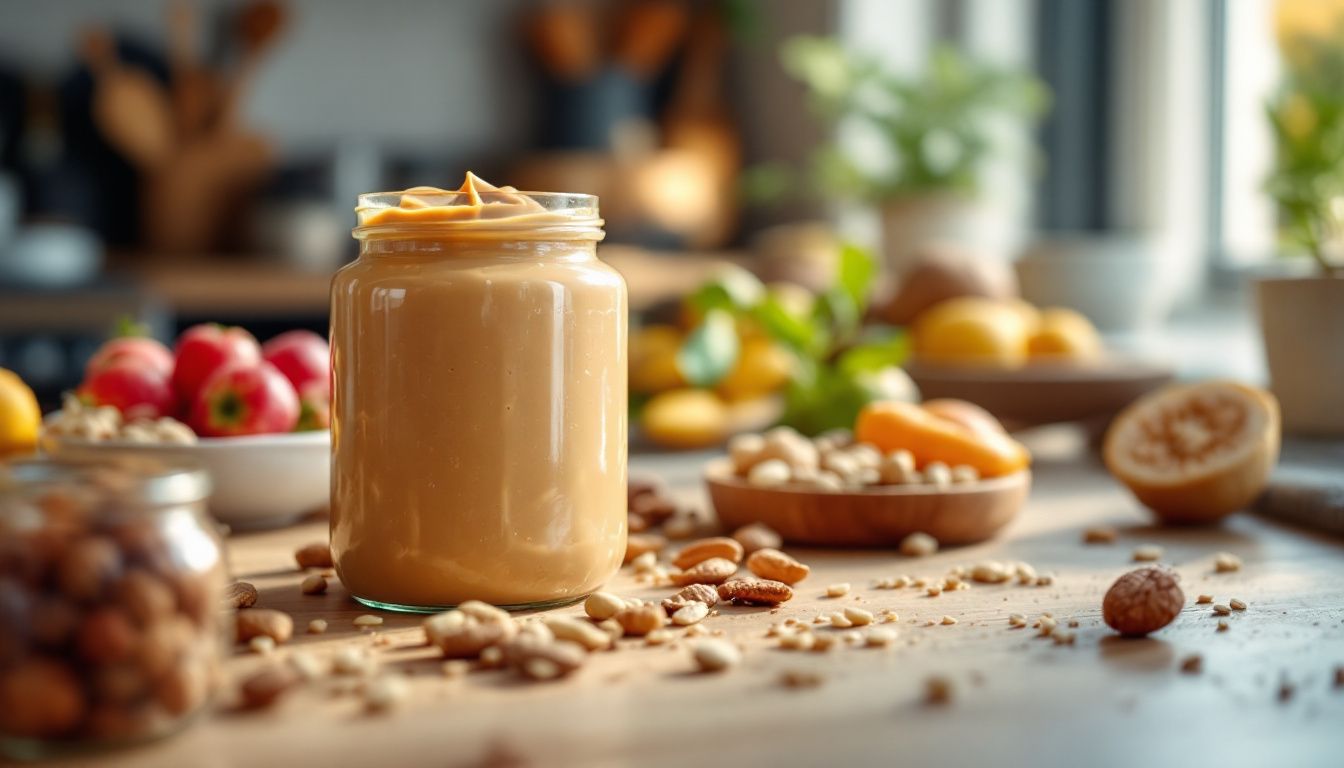Many people worry about the saturated fat in peanut butter and how it affects their health. While it does contain some saturated fats, peanut butter is rich in unsaturated fats that support heart health.
Thank you for reading this post, don't forget to subscribe!This blog will explain why peanut butter can still be a healthy choice when eaten in moderation. Keep reading to learn more!
Key Takeaways
- Peanut butter has 3.3 grams of saturated fat per serving but 12.3 grams of heart-healthy unsaturated fats.
- It contains nutrients like protein, Vitamin E, Magnesium, and Vitamin B6 that support health.
- Eating it in moderation can lower LDL cholesterol and reduce the risk of heart disease by up to 38%.
- Natural peanut butter is a better choice without added sugars or unhealthy oils like palm oil.
- Portion control prevents overeating since two tablespoons have about 190 calories.
Understanding Saturated Fat in Peanut Butter

Saturated fat in peanut butter isn’t as bad as it sounds. A serving of 2 tablespoons (32 grams) contains just 3.3 grams of saturated fat. That’s smaller compared to its 12.3 grams of unsaturated fats, which make up 80% of the total fat content.
Eating moderate amounts of saturated fats is safe for most people. The real danger lies in eating too much, which can raise LDL cholesterol levels and increase heart disease risk. Natural peanut butter often has fewer added sugars or oils like palm oil, making it a better choice for your diet.
Let’s explore why this spread remains healthy despite its fat content!
Why Peanut Butter Is Still a Healthy Choice
Peanut butter provides healthy fats like monounsaturated and polyunsaturated fats. These improve heart health by lowering LDL cholesterol levels. It contains oleic acid, which supports lower blood pressure and boosts good cholesterol.
A two-tablespoon serving offers 8 grams of protein and essential nutrients such as Vitamin E, Magnesium, and Vitamin B6. Studies suggest it may reduce the risk of type 2 diabetes and heart disease by up to 38%.
Its natural form—made mainly from ground peanuts—is a nutritious addition to a balanced diet.
Peanut butter can be part of your healthy lifestyle without guilt.
The Role of Moderation and Balance
Eating peanut butter in moderation is key. A two-tablespoon serving has about 190 calories, which can add up quickly if you’re not careful. Even though it contains healthy fats like monounsaturated and polyunsaturated fats, too much of it may lead to weight gain.
Portion control helps keep your diet balanced without overloading on calories.
Choosing natural peanut butter also supports balance by avoiding extra sugars and unhealthy oils like palm oil. It provides health benefits such as improved heart health and stable blood sugar levels when eaten responsibly.
Pairing it with other nutrient-rich foods, such as whole grains or fruits, creates a more wholesome snack for better nutrition and energy.
Conclusion
Peanut butter remains a healthy choice, even with its saturated fat content. Its mix of unsaturated fats, protein, and fiber supports heart health and weight management. Natural peanut butter offers added benefits without unnecessary extras like sugar or palm oil.
When eaten in moderation as part of a balanced diet, it can be both nutritious and satisfying. Enjoy it guilt-free for its taste—and its many health perks!
For more insights on making healthy dietary choices, check out our guide on becoming vegetarian.
References
- https://www.health.harvard.edu/nutrition/ask-the-doctor-why-is-peanut-butter-healthy-if-it-has-saturated-fat (2019-07-30)
- https://www.medicalnewstoday.com/articles/323781 (2018-11-23)
- https://www.webmd.com/diet/peanut-butter-good-for-you
- https://pmc.ncbi.nlm.nih.gov/articles/PMC4711439/
- https://www.healthline.com/nutrition/is-peanut-butter-bad-for-you (2024-10-10)
